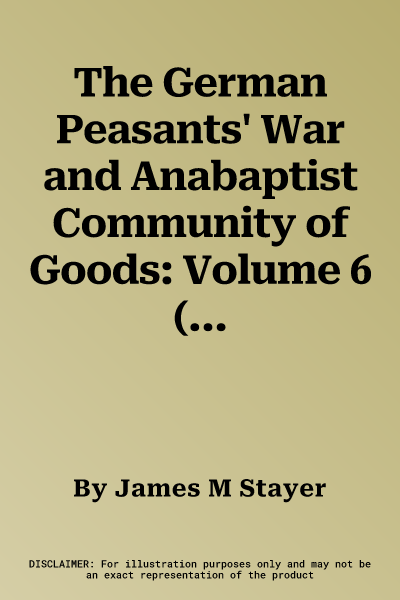James M Stayer
(Author)The German Peasants' War and Anabaptist Community of Goods: Volume 6 (Revised)Paperback - Revised, 10 January 1994

Temporarily out of stock
Free Delivery
Cash on Delivery
15 Days
Free Returns
Secure Checkout

Part of Series
McGill-Queen's Studies in the History of Religion
Print Length
258 pages
Language
English
Publisher
McGill-Queen's University Press
Date Published
10 Jan 1994
ISBN-10
0773511822
ISBN-13
9780773511828
Description
Product Details
Author:
Book Edition:
Revised
Book Format:
Paperback
Date Published:
10 January 1994
Dimensions:
22.86 x
15.24 x
1.78 cm
ISBN-10:
0773511822
ISBN-13:
9780773511828
Language:
English
Pages:
258
Publisher:
Weight:
371.95 gm